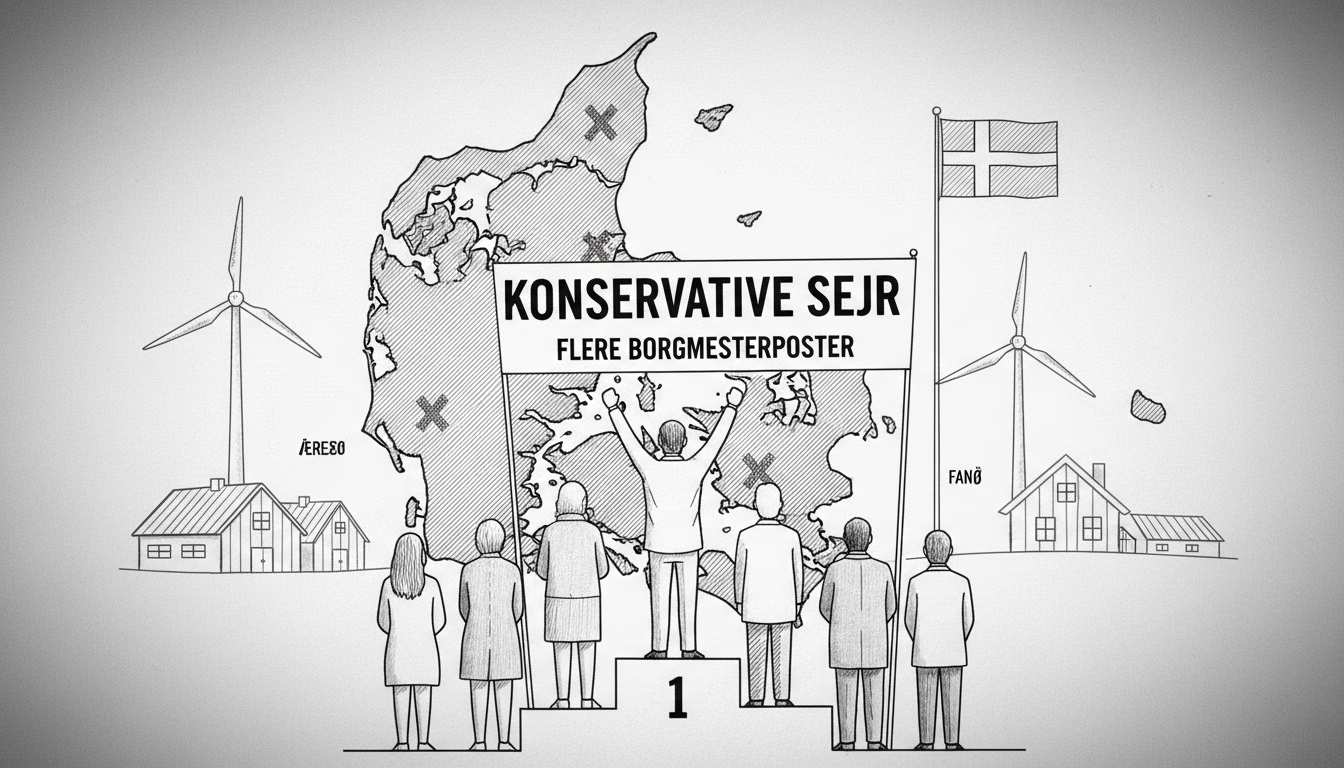The Conservative Party has made a strong showing in Denmark's municipal elections. Early results indicate the party is positioned to secure several key mayor positions across the country.
In three municipalities, the Conservatives appear set to capture new mayor offices. The party also looks likely to maintain power in several municipalities where they already hold the mayor position. The island municipalities of Læsø and Samsø are both projected to get new Conservative mayors. The party received 45.6 percent and 36.3 percent of votes in these communities respectively.
Michael Nielsen from the Conservative Party appears set to capture the mayor's office in Kerteminde. In Gentofte, a traditional Conservative stronghold, the party maintains its absolute majority with 47.3 percent of votes. This means Michael Fenger will likely remain as mayor, though the party experienced a 9.7 percentage point decline in this historically Conservative municipality.
Neighboring Lyngby-Taarbæk represents another Conservative stronghold. The party emerged as the largest there with 42.3 percent of votes. Before all votes were counted, the sitting mayor Sofia Osmani declared herself the winner according to reports.
The Conservatives also secured absolute majorities in Dragør and Vallensbæk. The sitting Conservative mayors in these municipalities appear set to retain their positions.
Around midnight, the Conservatives looked likely to claim mayor positions in 7 out of 13 municipalities where results were confirmed. The party also became the largest in Ringsted Municipality, Langeland Municipality, Favrskov Municipality and Gribskov Municipality.
This election performance comes after the Conservatives secured 14 mayor positions in the 2021 municipal elections. That result marked the party's best municipal election performance in 36 years. Party leader Mona Juul repeated the party's goal of maintaining those 14 mayor positions when she cast her vote.
Danish municipal elections determine local leadership across 98 municipalities. Mayors hold significant power over local services including schools, elderly care, and infrastructure. The Conservative Party's strong performance suggests continued center-right influence in Danish local politics, particularly in affluent suburban areas.
The election results reflect ongoing political trends in Denmark where traditional center-right parties maintain strong local support despite national political shifts. The Conservative Party's ability to hold key municipalities indicates their established local networks and candidate appeal remain effective.
International observers of Nordic politics will note how Denmark's Conservative Party continues to perform well in local elections despite broader European trends where center-right parties sometimes struggle. The party's focus on local issues rather than national controversies appears to resonate with voters in key municipalities.
What happens next? The confirmed results will determine local governance for the next four years. The Conservative Party's success in these elections could provide momentum for their national political ambitions. The party will likely use these local victories as evidence of their broad appeal ahead of future parliamentary elections.

